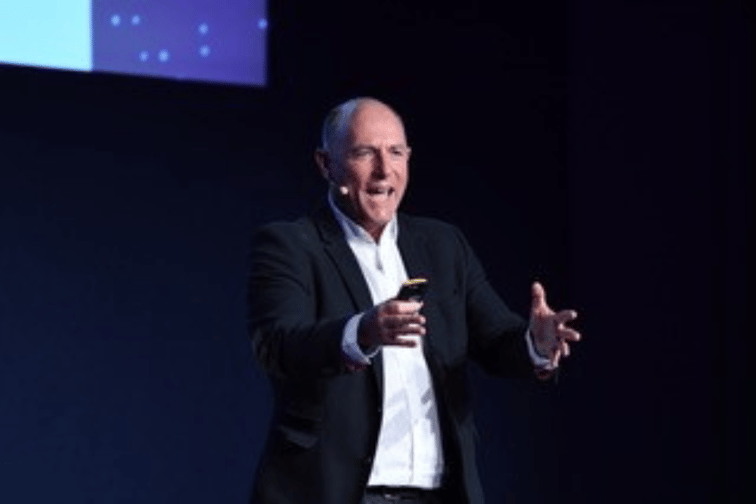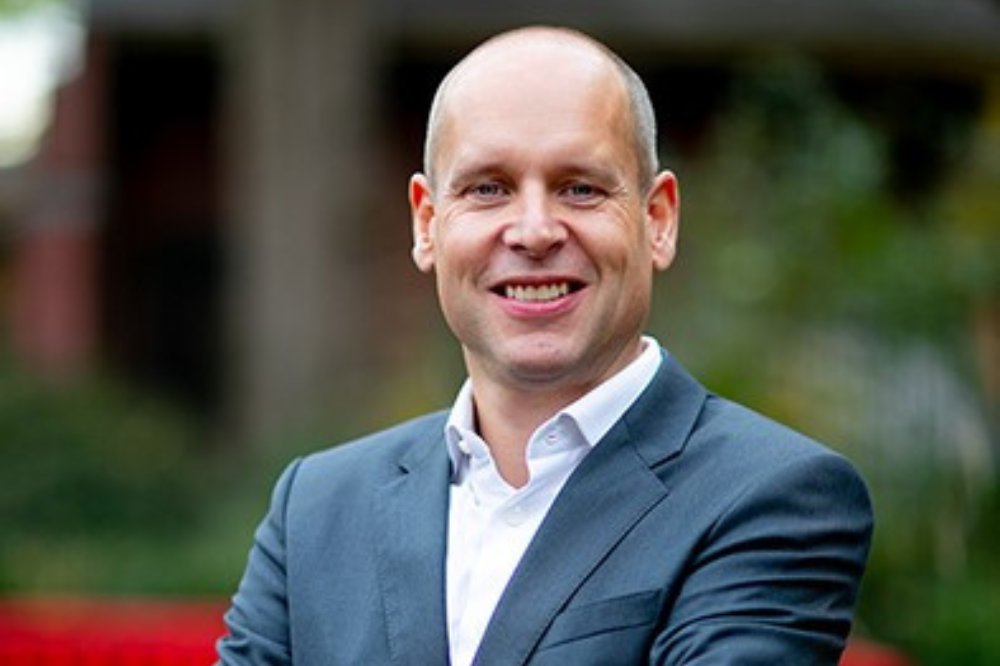

May is Mental Health Awareness month – a time when industry sectors shine a spotlight on the need to #breakthestigma around mental wellbeing challenges. But for those leading the charge of campaigning for action on mental health awareness, celebrating this worthy cause comes with a caveat – that the end of the month doesn’t see the dimming of this spotlight, casting the people it illuminated back into metaphorical darkness and all-too-often literal silence.
For long-time campaigner and advocate, Geoff McDonald (pictured above), allocating a day, a week or even a month to addressing the challenge of mental wellbeing falls far short of the reach and impact mental health challenges can have on an individual and collectively on an organisation. It’s akin to putting in a new IT system and then going back to the drawing board after a week, he said, when what people actually need is long-term-orientated, accessible, and relevant solutions.
Having that end goal in mind is what first drew his attention to Cigna’s ‘5% Pledge’ – a public commitment from senior leadership teams and CEOs to devote 5% of their annual work hours to mapping out and implementing tangible mental wellbeing improvements within their organisations.
“What I love about this pledge is that it gets senior leaders thinking about mental health as a strategic issue within their organisations,” he said. “It gets them thinking strategically about how to enable and enhance the performance of their organisation while at the same time, just being the right thing to do. Because, if you are genuinely a purpose-led organisation, then showing a duty of care to your people is instrumental to your proposition.”
Arjan Toor (pictured below) CEO of Cigna Europe noted that the 5% pledge found its roots in Cigna’s annual 360-degree wellbeing survey which consistently pinpointed how increasing mental health concerns are creating challenges for individuals and organisations alike. Conversations with Cigna’s clients have revealed that companies do understand there is an issue, he said, and they do see increased expectations for employers stepping up and proactively engaging in providing better mental health support for staff – but they don’t really know where or how to get started.

“With that in mind and considering the increasing urgency around mental health as a topic, we launched this 5% pledge,” he said. “It’s aimed at CEOs and business leaders, those people senior in organisations - whether those organisations are larger or smaller employers. It’s about empowering them and supporting them in actively addressing mental health in the workplace by openly declaring that they’re going to dedicate 5% of their working hours to addressing mental health.”
When it comes to mental wellbeing, Toor said, the truth is that there is no silver bullet – the secret, if there is any, is meaningful, iterative progress – and that has to start from the top-down. Because mental health in the workplace cannot be addressed openly and honestly unless the workplace is a safe space for people to talk about their concerns. Breaking the stigma can only really happen if senior leaders acknowledge that there is a problem that they want to actively address.
“This pledge is an open declaration,” he said. “They’re publicly acknowledging their concerns and they’re promising to do something about them – to actually use their work hours to address this challenge.”
The number of organisations taking on this pledge is ever-increasing, Toor said, and Cigna’s role is to actively work with these firms to support them in turning their intentions into actions. This includes access to a broad toolkit of wellbeing solutions and resources, among them a health risk assessment that they can roll out across their organisation.
Instrumental to the success of this pledge has been the development of a community of like-minded business leaders who have embraced the challenge at hand and who want to be part of the solution. Connecting these organisations and bringing them together to allow them to learn from each other and establish best practices has been critical, he said, because there is no one right answer to addressing mental health in the workplace – and an open exchange of ideas is the foundation of a healthy platform for growth.
For McDonald, who is a primary source of information on what it looks like when people are supported and empowered by their organisations, seeing the inroads made by Cigna has made for powerful viewing. Because as former global VP for HR at Unilever, he said, he was at the peak of his career when he got very sick with anxiety-fuelled depression.
“One of the things that I got so lucky with is that I made a decision not to be burdened by stigma,” he said. “And that decision allowed me to talk about my illness with some of my colleagues, my friends and my family. And probably the most important piece of my empowerment, one which allowed me to make that decision, was that I had a line manager who had a compassionate relationship with mental ill health.”
There’s a clear line between compassion and empathy, McDonald said, because compassion is completely free from judgment. His illness required him to take three months off work, but the fact that he could talk about his illness so openly allowed him to experience what he believes were the two most powerful ingredients in his recovery – love and hope.
“In my darkest moments, knowing that I had a 10-year-old who loved me, I had a line manager who loved me, I had friends who loved me - that was probably the most powerful thing and that kept me alive,” he said, “And during those three months off work, I used to speak to a colleague every 10 days who had been so ill due to depression that he’d been admitted to hospital. And when I spoke to him, I saw that he was better and that gave me hope. It gave me my first glimpse of the light at the end of the tunnel and the idea that this would pass and I could get better.”
It was four years on from this “crucible moment” that he lost a very good friend to suicide, McDonald said, and the night his friend died he pondered what the difference was between them. And the conclusion was heartbreakingly simple – he had been able to talk when his friend simply couldn’t bring himself to. That was the catalyst for him – that was the moment when he knew his future lay in giving a voice to those millions around the world convinced they have to suffer in silence.
That night he wrote to Alastair Campbell, an ambassador for Time to Change, and from his initial introduction, he was able to start and continue his work in creating workplaces around the world where people feel able to say what’s on their minds. As a long-time activist, with experience leading ground-breaking mental wellbeing pilots for companies including Unilever, McDonald noted that he knows from experience what good practice looks like, which is why he’s so happy to be an ambassador for Cigna’s 5% pledge.
“This pledge focuses on how what organisations can do to create a place where people thrive and where people feel psychologically safe,” he said. “I’m tired of listening to organisations equating people’s wellbeing with giving them access to an app. Meanwhile, the culture of the organisation is so often what's causing some of these issues.”
It’s a two-way thing, McDonald said. Individuals have got to use the resources that organisations offer them to maintain their overall wellbeing and their mental health. But organisations also have a responsibility to eradicate the cultural barriers that might be causing pain for people and to address the stigma of mental ill health. It takes “organisational change” – which is why he believes Cigna’s pledge differentiates itself from other wellbeing initiatives – offering significant opportunities and challenges to organisations alike.
“And the truth is that doing this and doing it right, might just save a life,” he said. “You might just save a life by taking this pledge and actively undergoing a shift in culture, creating a psychologically safe place to work in. By truly addressing the stigma, you might just save a life.”
What are your thoughts on this story? Feel free to share them in the comment box below.
